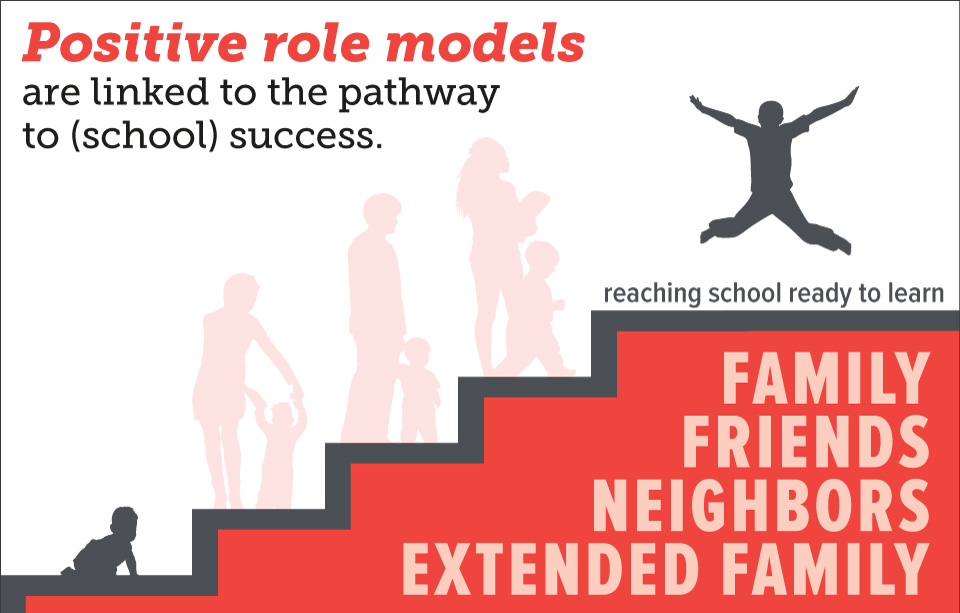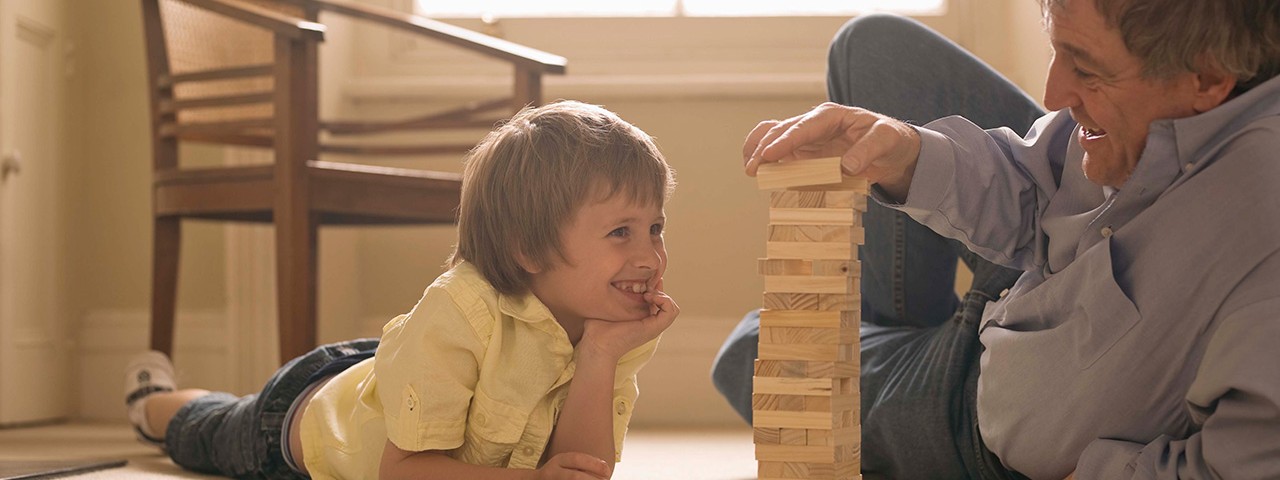Positive Role Models Are Linked to Success in School
- Tweet

There are many resources that can help to support families with young children. Some resources, such as health insurance, sufficient nutrition, and books and toys, can support healthy early childhood development directly. Other resources, such as a safe home, help to support a family's well-being, and reduce a child’s exposure to chaos and toxic stress. There is also a third category of resources that are not tied to a family's income.
These include the set of relationships and informal resources that a family can draw upon in times of need. For some families, these informal relationships provide a source of support. The help of extended family, neighbors, and friends can offer a safety net and provide an important resource to families. Collectively, these informal relationships are considered a large component of a family's level of “social capital.”
The influence of having an informal network of interpersonal resources has been well documented on a range of outcomes for individuals and for communities. When neighbors keep a watch out for each other and keep a protective eye on each other's homes and property, for example, not only do residents feel safer, but by objective measures, crime actually is lower in those neighborhoods.
If these informal resources are important for family well-being, is it possible that they also support early childhood development? In turn, do they help to support school readiness? If this proved to be the case, then we might be in a position as a community to help to identify ways that families would be able to draw upon their interpersonal relationships in order to support the development of their youngest children. There are certainly reasons to suspect that social capital would support child development and school readiness.
We know, for example, that children do better, in terms of both early development and school readiness, when they are protected from chaotic and disrupted home lives. When parents believe that there are trustworthy adults in their neighborhood, and when they feel they can ask for, and return, favors with neighbors, this would help to reduce the chaos and uncertainty in their home lives.
As it happens, we have a means at our fingertips to assess the strength of the relationship between informal social capital and school readiness in Memphis, Tennessee. For the past few years, we have asked the parents of new kindergarteners about the early childhood experiences of their children before reaching the kindergarten doors. Our intention in this series of studies is to identify and strengthen the roots of academic success in these children and to effectively build those skills that are less developed.
As part of this project, in the fall of 2012 we asked parents of new kindergartners several questions about various aspects of their children's early childhood experiences. Included in this survey were questions that allow us to comment on the relationship between family access to social capital within their neighborhood, and the level of kindergarten readiness of their children.
In some of the questions, we asked parents about the degree to which they believed that adults in their neighborhoods provided positive role models to children. For example, we asked to what extent their neighbors helped each other out when needed, or the extent to which their neighbors were people that their children could look up to.
Meanwhile, new kindergartners were given a brief assessment of their readiness for kindergarten on a number of key dimensions, including early reading skills. By comparing the dimension of social capital to these early reading skills, we sought to understand a bit more about how access to informal, neighborhood based social capital can support families with young children, leading to stronger kindergarten readiness.
Our findings are striking: when parents feel like their neighbors are positive role models, their children reach kindergarten “more ready” to take on the task of early reading.
These findings help to strengthen our understanding of the ways that neighborhood characteristics can matter for early childhood well-being. As the old saying goes, it takes a village to raise a child, and this is particularly true for families trying to juggle the many demands of modern life. Having a neighbor or friend to count on for help can make a tremendous difference for families, including better outcomes for their children.

